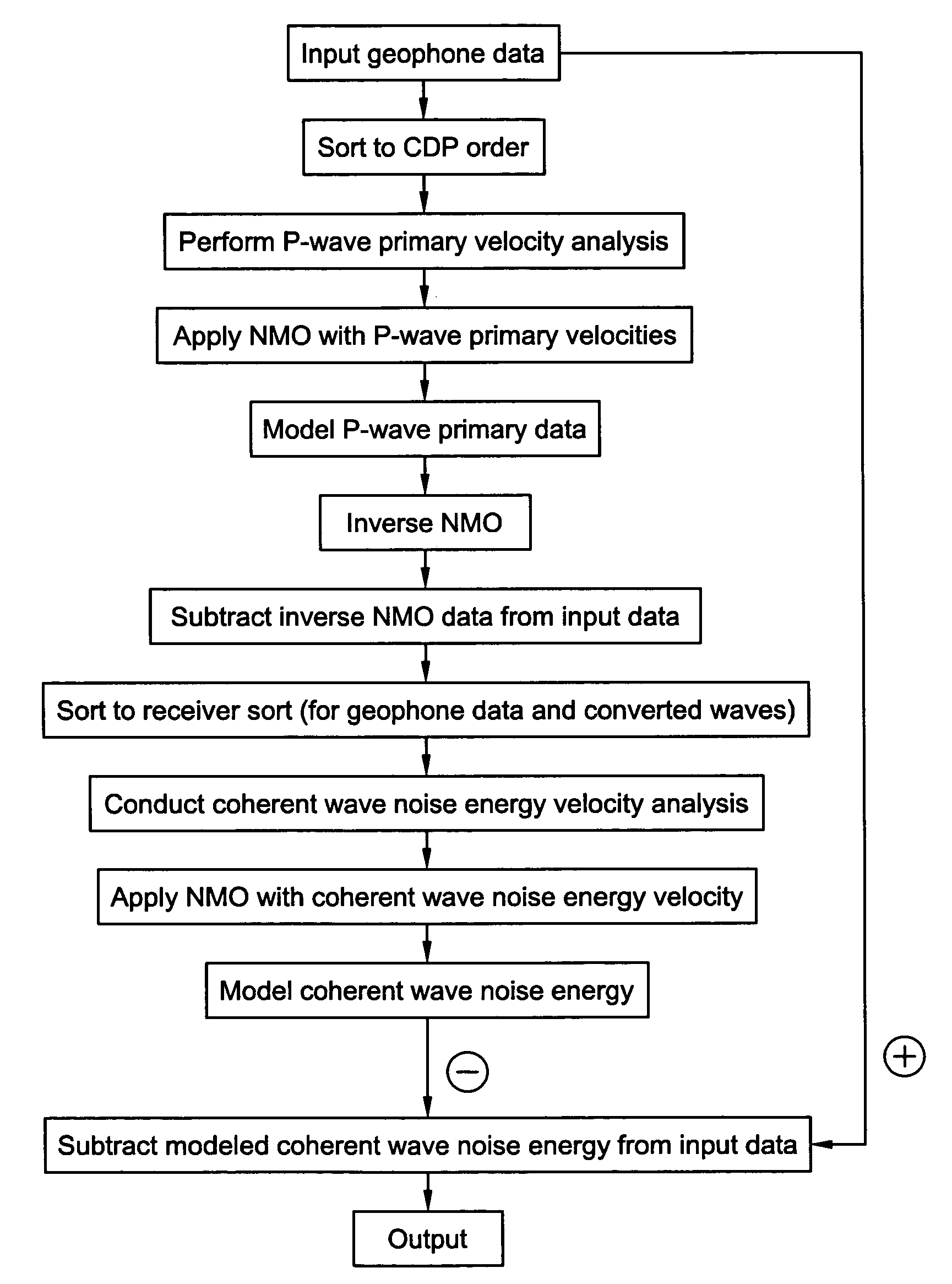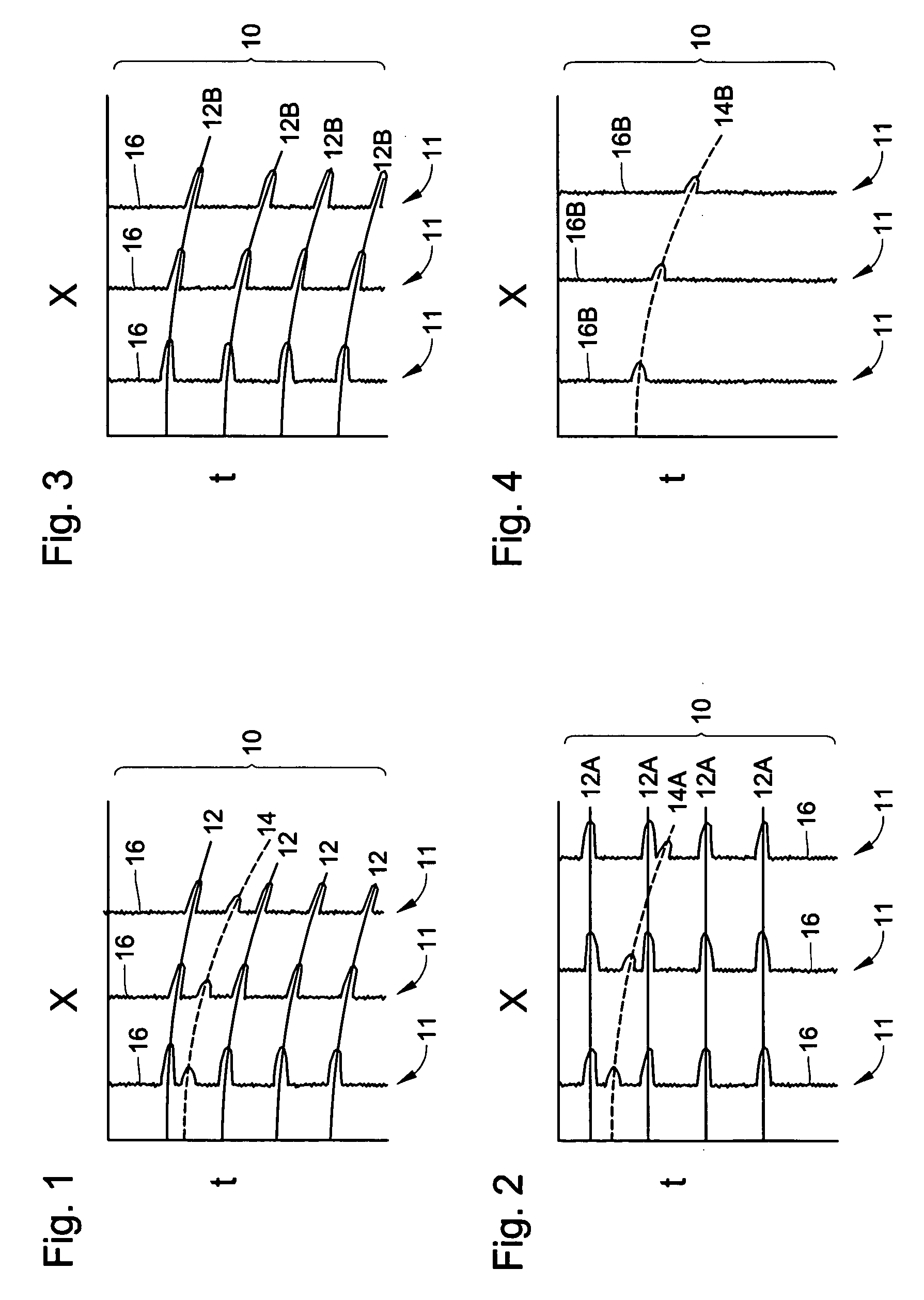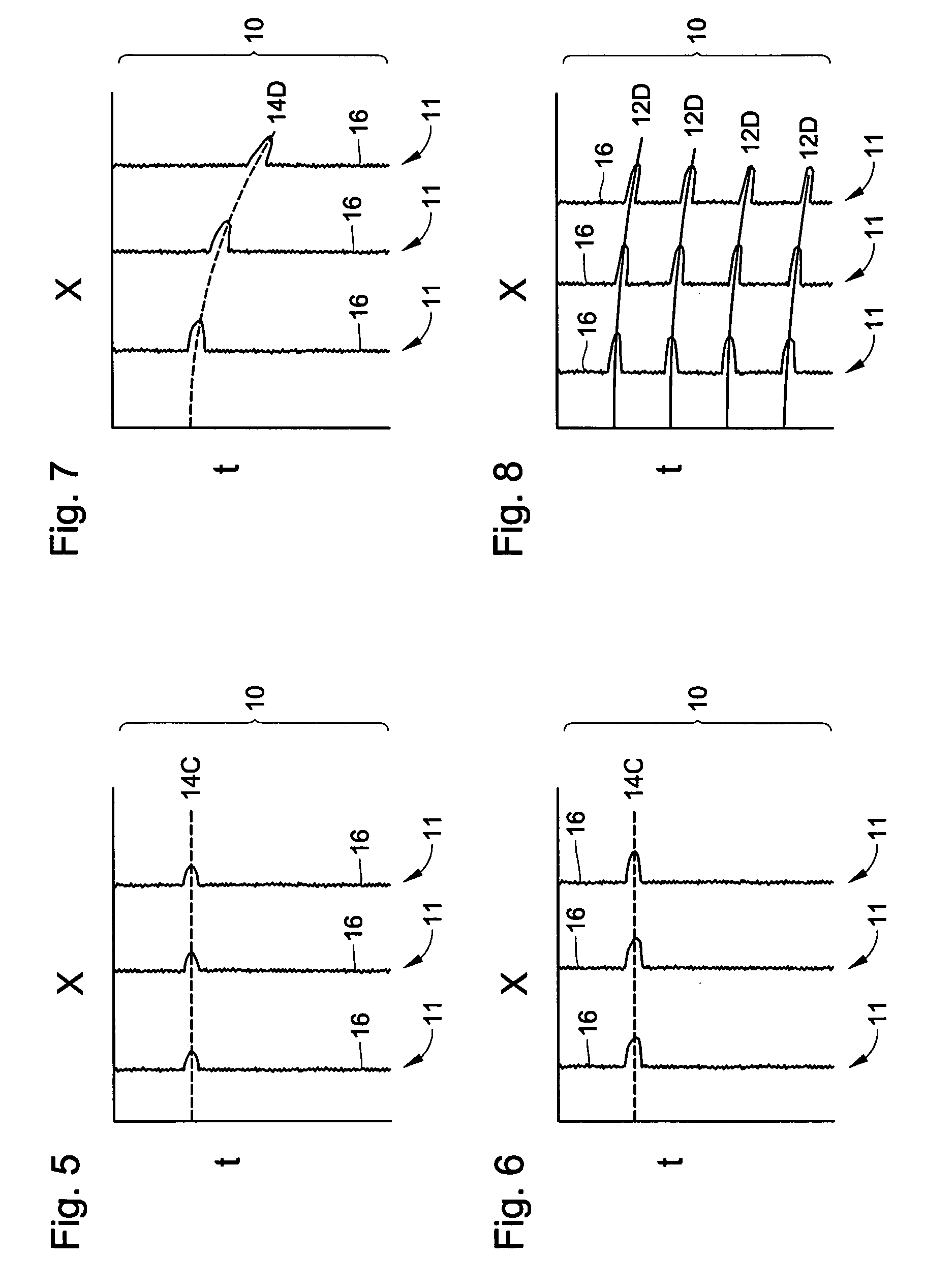Converted wave energy removal from seismic data
a technology of seismic data and converted wave energy, applied in the field of seismic exploration, can solve the problems of coherent wave noise energy affecting the desired p-wave primary energy, and achieve the effect of removing coherent wave noise energy and precise subtraction of converted wave energy
- Summary
- Abstract
- Description
- Claims
- Application Information
AI Technical Summary
Benefits of technology
Problems solved by technology
Method used
Image
Examples
Embodiment Construction
[0025]In describing the preferred embodiments, for convenience, the Figures referenced herein are one side, positive or negative offset (source to receiver distance) of a sort in which the coherent wave noise energy follows a hyperbolic path across the sort and represent a receiver sort for converted wave energy sampled by a geophone. As such, the sort is receiver constant for purposes of the illustration. However, those skilled in the art will understand that the inventive process described herein will work for other types of coherent noise as well.
[0026]With reference to FIG. 1, there is shown a time-offset (“T-X”) display of original sensor data 10 in an unprocessed format. Data 10 is comprised of individual traces 11. For converted waves sampled by a geophone, the displays correspond to receiver sorts with half the sort shown, i.e. positive or negative offsets only. This is done because converted waves for geophone data will be receiver consistent rather than shot or CDP consist...
PUM
 Login to View More
Login to View More Abstract
Description
Claims
Application Information
 Login to View More
Login to View More - R&D
- Intellectual Property
- Life Sciences
- Materials
- Tech Scout
- Unparalleled Data Quality
- Higher Quality Content
- 60% Fewer Hallucinations
Browse by: Latest US Patents, China's latest patents, Technical Efficacy Thesaurus, Application Domain, Technology Topic, Popular Technical Reports.
© 2025 PatSnap. All rights reserved.Legal|Privacy policy|Modern Slavery Act Transparency Statement|Sitemap|About US| Contact US: help@patsnap.com



